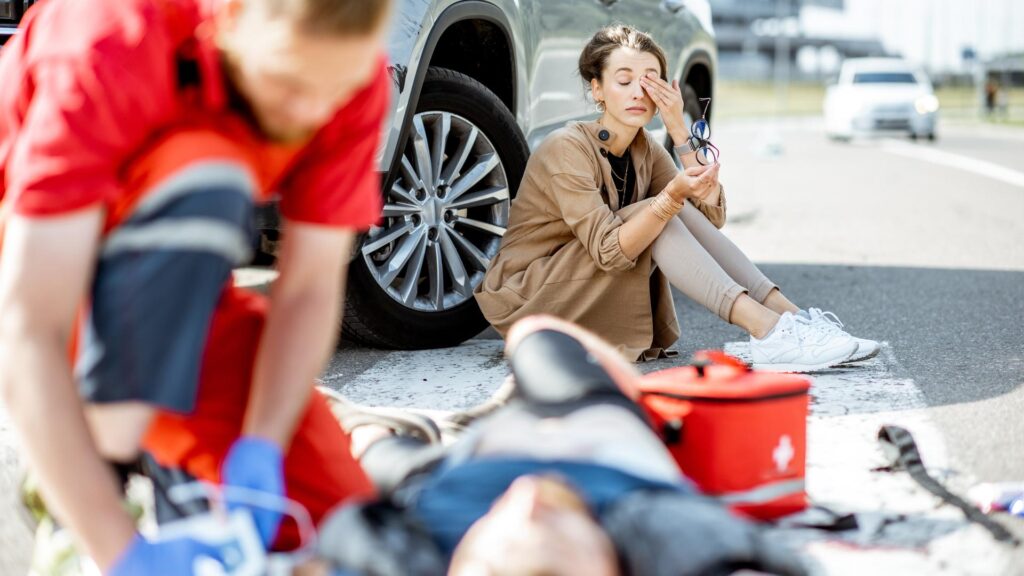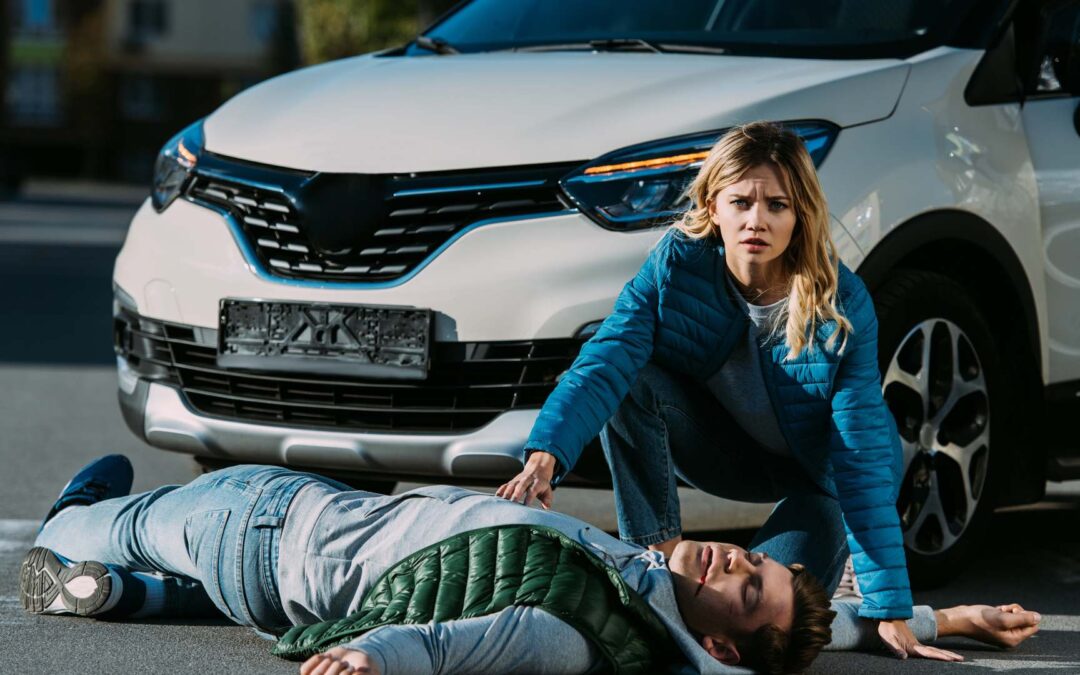Good Samaritan laws are designed to protect individuals who voluntarily assist others in emergency situations. In Georgia, the Good Samaritan law plays an important role in car accident cases. It provides legal protection to those who offer aid at the scene of an accident, encouraging bystanders to help without fear of legal repercussions. Understanding the nuances of Georgia’s Good Samaritan law is crucial for both accident victims and those who may be in a position to offer assistance.
This blog will explore the specifics of Georgia’s Good Samaritan law, its implications in car accident cases, and how it affects both the individuals who provide help and those who receive it.
What is Georgia’s Good Samaritan Law?
Georgia’s Good Samaritan law is codified under O.C.G.A. § 51-1-29. The law provides legal protection to individuals who render emergency care in good faith at the scene of an accident or other emergency situation. The purpose of this law is to encourage people to assist others in need without the fear of being sued if something goes wrong.
In Georgia, the Good Samaritan law applies to a wide range of situations, including car accidents. It covers both medical and non-medical assistance, meaning that whether you are providing first aid or simply helping to move someone to safety, the law is designed to protect you from liability as long as your actions are reasonable and in good faith.
Key Provisions of Georgia’s Good Samaritan Law
1. Good Faith Requirement
The Good Samaritan law in Georgia specifically protects individuals who act in “good faith.” This means that the person providing assistance must do so with the honest intention of helping, without any expectation of reward or compensation. If a person acts in bad faith, such as intentionally causing harm or acting recklessly, they may not be protected under the law.
2. Reasonable Care Standard
The law requires that any assistance provided must be reasonable under the circumstances. This means that the person offering help must act within their capabilities and not take unnecessary risks that could cause further harm. For example, if someone without medical training attempts a complex medical procedure and it results in injury, they may not be protected by the Good Samaritan law.
3. Protection from Civil Liability
Under Georgia’s Good Samaritan law, individuals who render emergency care in good faith are generally protected from civil liability. This means they cannot be sued for damages resulting from their assistance, provided they acted reasonably and without gross negligence. However, this protection does not extend to criminal liability, meaning that if a person’s actions are found to be criminally negligent, they could still face criminal charges.
Application of the Good Samaritan Law in Car Accident Cases
1. Medical Assistance at the Scene
One of the most common applications of Georgia’s Good Samaritan law in car accident cases involves providing medical assistance at the scene. If a passerby stops to help an injured driver by performing CPR or applying a tourniquet. They would be protected under the Good Samaritan law as long as their actions were reasonable and in good faith.
2. Non-Medical Assistance
The law also applies to non-medical assistance. Such as helping to move an injured person out of a burning vehicle or directing traffic to prevent further accidents. In these situations, the individual offering help is protected from liability as long as their actions are reasonable and do not cause additional harm.
3. Assistance by Off-Duty Medical Professionals
Off-duty medical professionals, such as doctors, nurses, or paramedics, who provide emergency care at the scene of a car accident are also protected under Georgia’s Good Samaritan law. This protection encourages medical professionals to assist in emergencies. Without worrying about potential legal consequences if their efforts are not successful.
4. Limits of Protection
It is important to understand that the protection offered by the Good Samaritan law in Georgia is not absolute. The law does not protect individuals who act with gross negligence or who intentionally cause harm. For example, if a person recklessly moves an accident victim, causing further injury, they may be held liable for those additional injuries.

Case Studies Involving Georgia’s Good Samaritan Law
1. Case Study: Aiding an Unconscious Driver
In one case, a Georgia resident stopped to help an unconscious driver after a car accident. The bystander provided basic first aid and stayed with the driver until emergency services arrived. The driver later attempted to sue the bystander, claiming that their actions had caused additional injuries. However, the court ruled that the bystander was protected under Georgia’s Good Samaritan law, as they had acted in good faith and provided reasonable care.
2. Case Study: Moving an Injured Passenger
In another case, a passerby moved an injured passenger from a vehicle that was at risk of catching fire. Unfortunately, the passenger sustained additional injuries during the move. The passenger filed a lawsuit against the passerby, but the court found that the Good Samaritan law applied because the passerby had acted reasonably to prevent a greater danger. The court emphasized that the law’s protection is meant to encourage prompt and decisive action in emergencies.
The Role of Georgia’s Good Samaritan Law in Civil Litigation
1. Defending Against Lawsuits
One of the key functions of Georgia’s Good Samaritan law is to provide a defense against lawsuits filed by individuals who were assisted during an emergency. If a person who received help at the scene of a car accident sues the Good Samaritan, the law can be used as a defense to argue that the actions were taken in good faith and were reasonable under the circumstances.
2. Burden of Proof
In civil litigation involving the Good Samaritan law, the burden of proof typically falls on the plaintiff to show that the defendant acted with gross negligence or bad faith. This can be a difficult standard to meet, particularly if the defendant’s actions were consistent with the type of care that a reasonable person would provide in an emergency situation.
3. Jury Considerations
When cases involving the Good Samaritan law go to trial, the jury may be asked to consider whether the defendant’s actions were reasonable and in good faith. The jury may also consider the urgency of the situation, the defendant’s level of experience or training, and whether the defendant’s actions were consistent with what a reasonable person would have done in similar circumstances.
Encouraging Assistance at the Scene of an Accident
1. Public Awareness and Education
Georgia’s Good Samaritan law is intended to encourage more people to offer assistance at the scene of an accident. Public awareness and education about the law are important to ensure that potential Good Samaritans understand their rights and protections. Knowing that they are legally protected may give more people the confidence to step in and help when they see someone in need.
2. Challenges in Applying the Law
Despite the protections offered by the Good Samaritan law, some individuals may still be hesitant to provide assistance due to fear of legal consequences. This is particularly true in situations where the potential for harm is high, such as providing medical care to a severely injured person. To address these concerns, ongoing efforts to clarify the law and provide guidance on reasonable actions in emergencies are essential.
3. The Importance of First Aid Training
While the Good Samaritan law protects individuals who provide assistance in good faith, having basic first aid training can increase the likelihood that the assistance provided will be both effective and safe. In Georgia, various organizations offer first aid and CPR training. This can be valuable for anyone who may find themselves in a position to help at the scene of an accident.
Potential Revisions and Updates to the Law
1. Expanding Protections
As emergency situations evolve, there may be a need to update Georgia’s Good Samaritan law to expand protections for individuals providing assistance. For example, with the rise of opioid overdoses, some states have expanded their Good Samaritan laws to protect individuals who administer naloxone. Georgia may consider similar expansions to protect those who assist in other specific types of emergencies.
2. Clarifying Legal Standards
Another potential area for revision is the clarification of legal standards under the Good Samaritan law. This could include providing more detailed guidelines on what constitutes reasonable care in various emergency situations. Clearer legal standards could help reduce the uncertainty that sometimes surrounds the application of the Good Samaritan law in court cases.
3. Addressing Technological Advances
As technology continues to advance, new challenges and opportunities for providing assistance in emergencies may arise. For example, the use of drones for delivering medical supplies or providing remote assistance could be addressed under the Good Samaritan law. Updating the law to reflect these technological advances could help ensure that those who use new tools to assist in emergencies are also protected from liability.
Conclusion
Georgia’s Good Samaritan law plays a crucial role in encouraging bystanders to assist in emergency situations, including car accidents. By offering legal protection to those who act in good faith and provide reasonable care, the law helps to ensure that more people are willing to step in and help when it is needed most. Understanding the key provisions of the law, its application in car accident cases, and the potential challenges that may arise can help both potential Good Samaritans and accident victims navigate the complexities of providing and receiving assistance.
Whether you find yourself in a position to offer help at the scene of an accident or you are involved in a legal case where the Good Samaritan law may apply, it is important to have a clear understanding of your rights and responsibilities under Georgia law. If you have questions about how the Good Samaritan law applies to your situation, consulting with an experienced attorney can provide valuable guidance and peace of mind.

